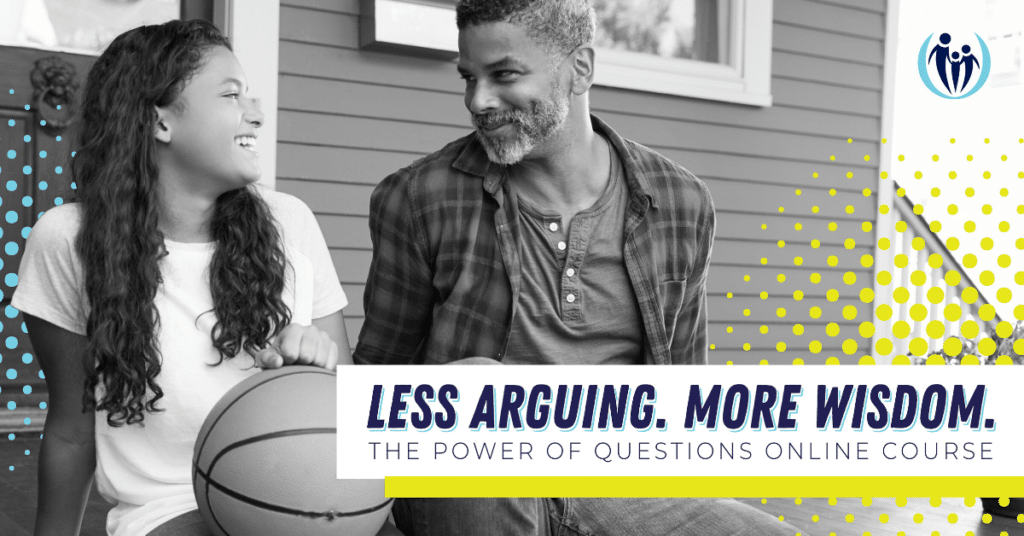Redirect Power Struggles with One Question
Ten minutes before dinner your child wheels around the corner and asks, "Can I go to a friend's for dinner?" Many parent mentors would suggest that this is one of those times to stand firm. And we agree. The question is - about what should we be firm?

Ten minutes before dinner your child wheels around the corner into the kitchen and asks, “Can I go to a friend’s for dinner?”
Inwardly you sigh. You’ve discussed many times that, in your house, last-minute dinner propositions feel disrespectful to the cook who’s already taken time to plan and make a meal. Can’t your child see you’re cooking? In typical parenting mode you say, “Of course not! Dinner here is almost ready.”
Your child is displeased. “But Mom! A bunch of kids are going and it’s not fair if I can’t go!”
“This isn’t about the other kids!” you assert. And you are right. But you are now locked in a classic power struggle.
Many parent mentors would suggest that this is one of those times to stand firm. And we agree. The question is – about what should we be firm?
What if the parent’s approach when kids ask for things they clearly shouldn’t get was not a quick firm answer, but a firm goal of helping the child think through rationale and parental perspective instead of impulsively arguing – with a question? Like this:
“Can I go to a friend’s for dinner?”
“Hmmm. Interesting question. Based on the timing of your question, and what you see going on in the kitchen, what do you think my answer might be?”
A question like this invites your child to consider the situation not from his or her perspective, but from yours. This is far less likely to invite a fight because it engages the thinking part of a child’s brain, not the defensive part. The answer “No” is still obvious, but now the child is invited to discover it and think it through for herself. Questions like this help kids understand that there are other perspectives in the world. Once their thinking brain is engaged, they are more open to a constructive engagement and acceptance of the answer. You are more open to supportive conversation, and who knows, your child’s rationale might just be good enough to change your mind. But even if not, your child will feel far more respected. So will you.
Try this approach. Let us know what you learn or what questions you have.
In our online course The Power of Questions: Less Arguing. More Wisdom. you will learn the art of asking questions that build internal wisdom and character in your kids, and create a culture of teamwork in your family. Join us today!


